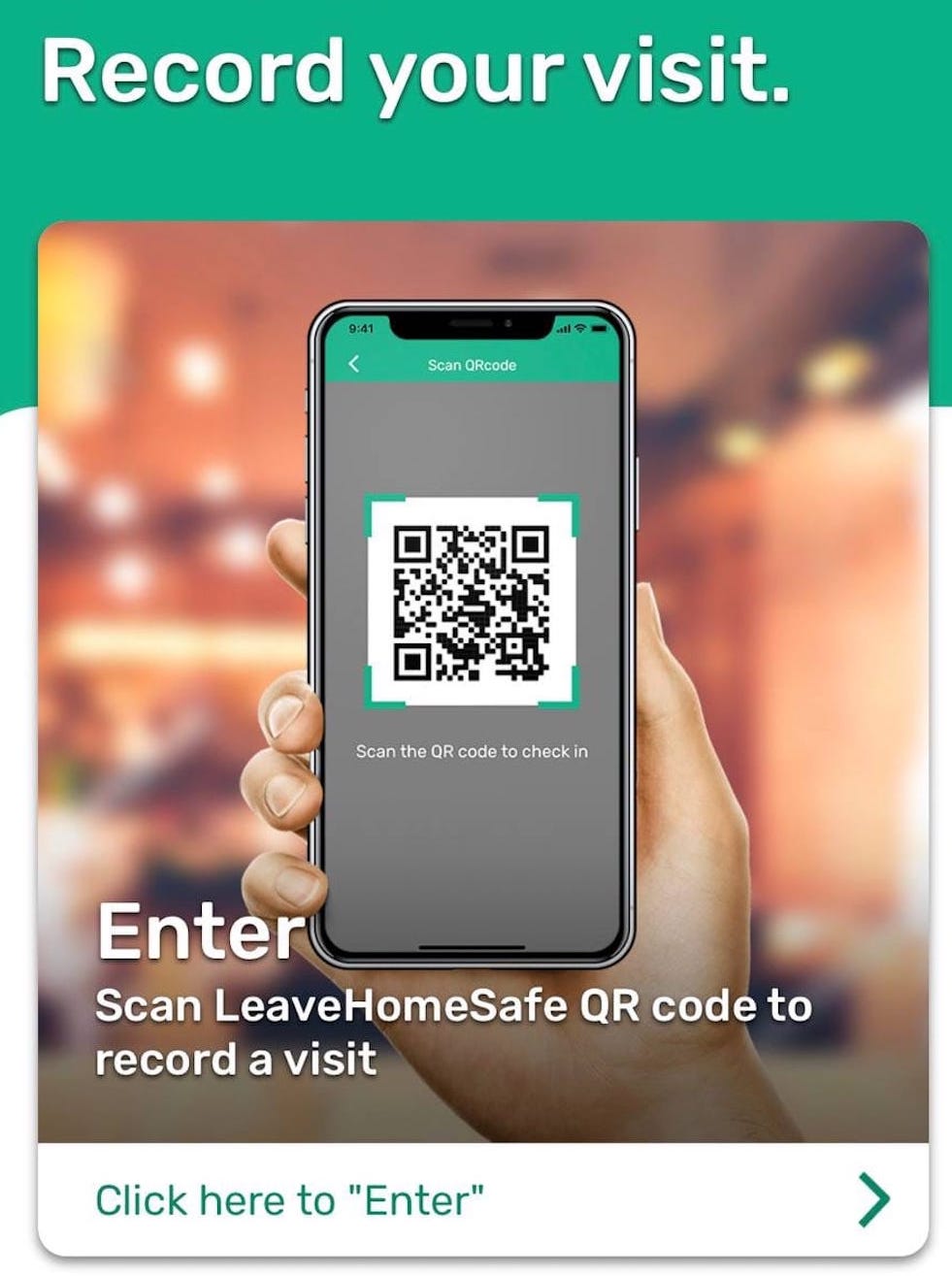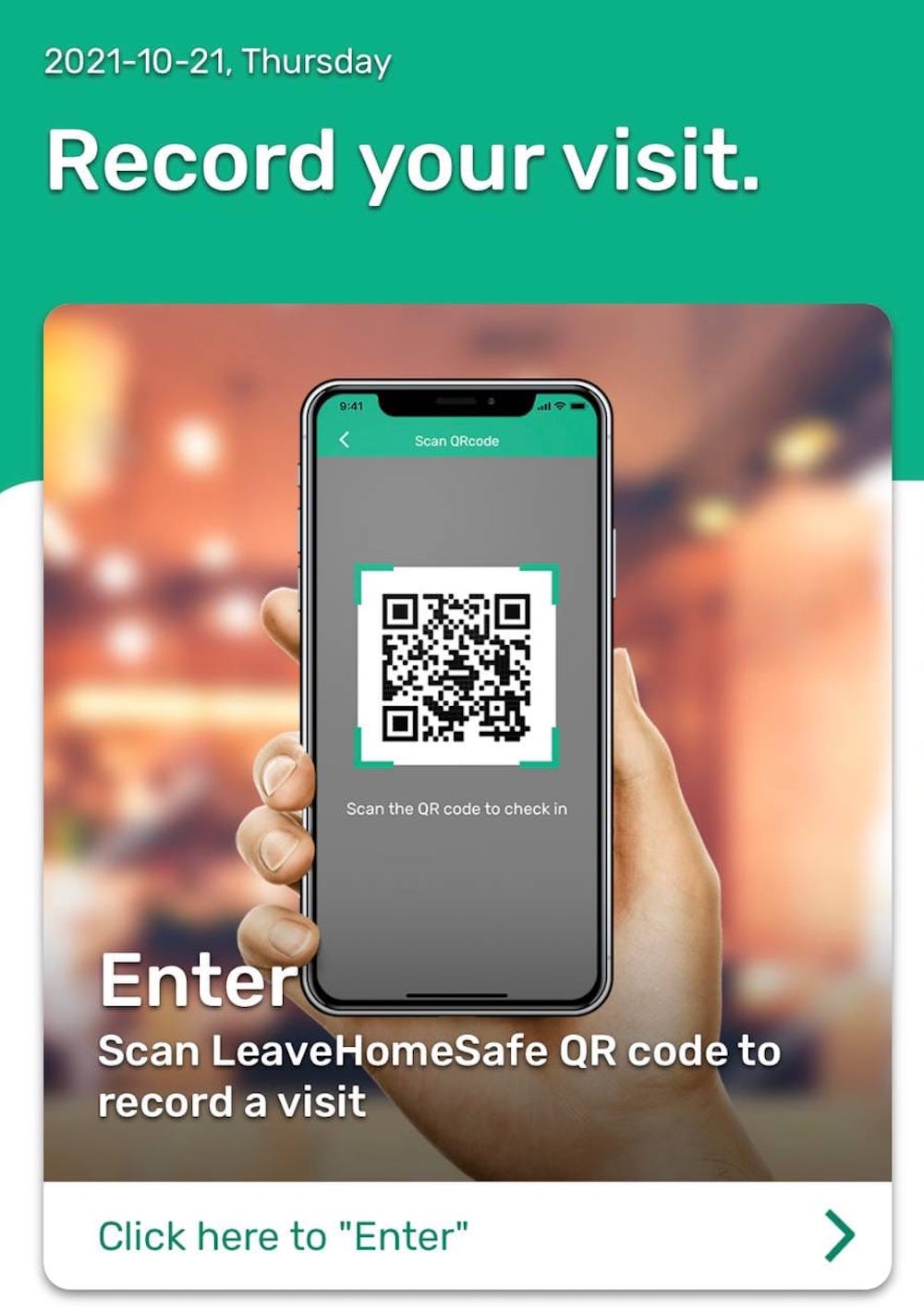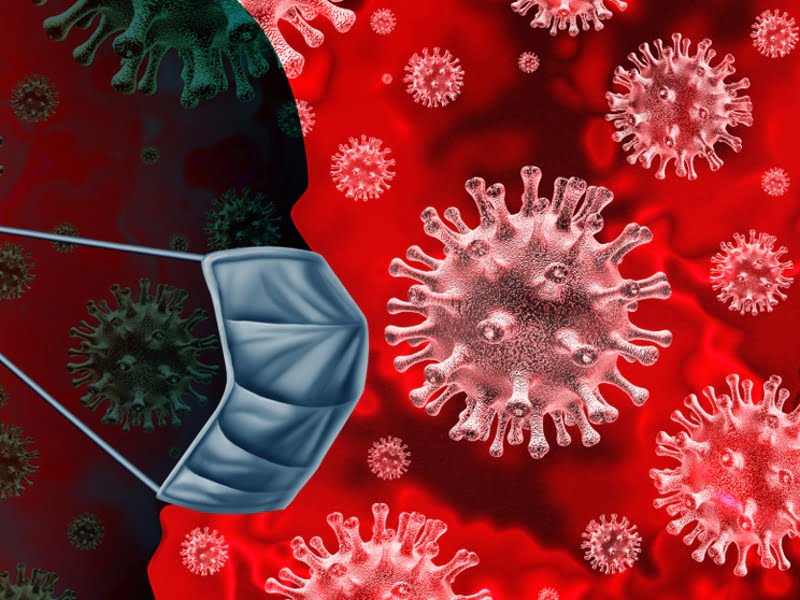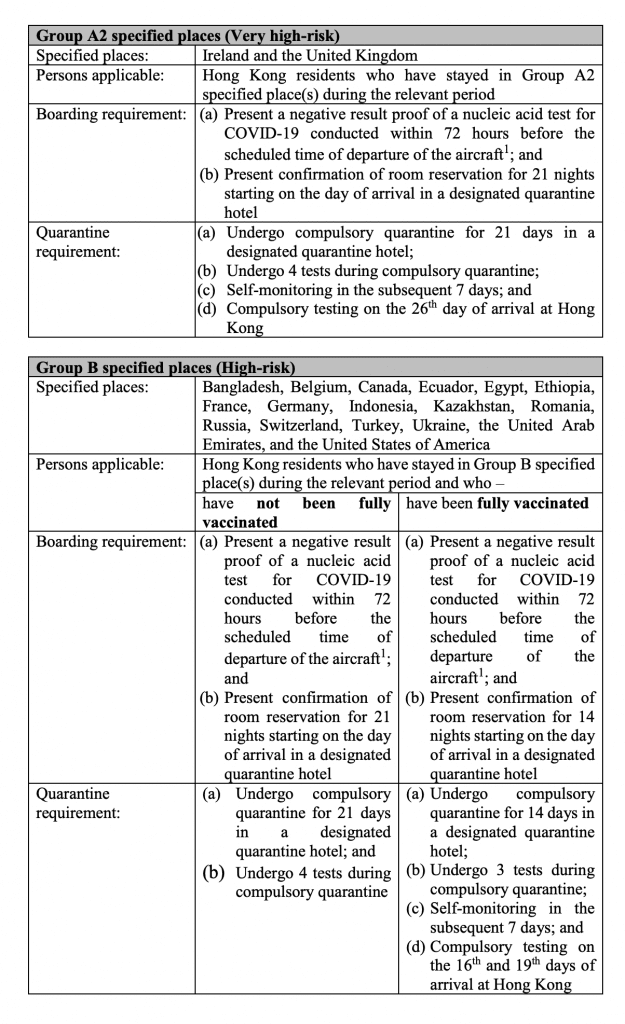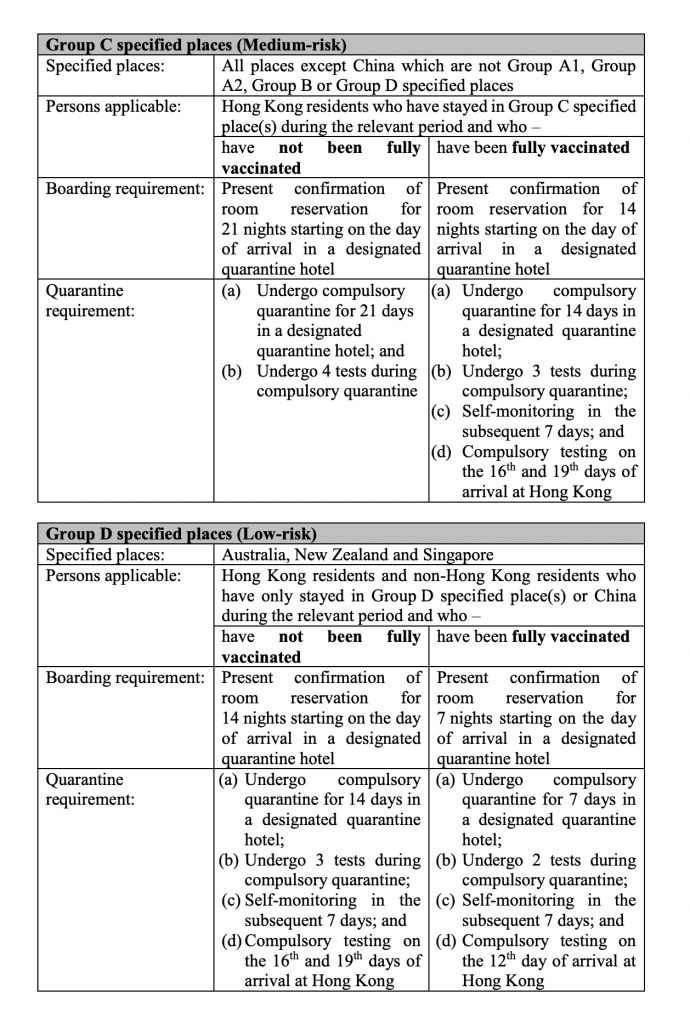The Government announced today (21 June) that the quarantine requirements for persons arriving at Hong Kong who have received COVID-19 vaccination will be adjusted in phases from 30 June. Except for those who had stayed in extremely high-risk or very high-risk places (Group A1 and A2 specified places), fully vaccinated persons with a positive result of serology testing for antibodies will be subject to a further shortened compulsory quarantine period of seven days upon arrival.
Non-Hong Kong Residents
Additionally, the restriction from entry to Hong Kong will be relaxed for fully vaccinated non-Hong Kong residents who have a vaccination record and who have only stayed in Group B specified places, Group C specified places or Taiwan to enter Hong Kong.
Such non-Hong Kong residents have to comply with the same quarantine and nucleic acid testing requirements as those applicable to Hong Kong residents, including a seven-day shortened compulsory quarantine period for those who possess positive result proof of a recognised serology antibody test conducted within the past three months.
Fully Vaccinated
Fully vaccinated means complying with these three criteria
- Fully vaccinated with a vaccination record (14 days after second dose);
- Obtained a negative nucleic acid test result during “test-and-hold” upon arrival at Hong Kong; and
- Possess positive result proof of a recognised serology antibody test conducted within the past three months (Note 2).
Overseas places outside China have been categorised under the Prevention and Control of Disease (Regulation of Cross-boundary Conveyances and Travellers) Regulation (Cap. 599H) into extremely high-risk Group A1 specified places, very high-risk Group A2 specified places, high-risk Group B specified places, medium-risk Group C specified places, and low-risk Group D specified places.
Low-risk Group D
Under the new arrangements, persons who have stayed in low-risk Group D specified places, and who have been fully vaccinated, will be subject to compulsory quarantine in designated quarantine hotels for seven days (14 days unvaccinated). They will subsequently be required to self-monitor for seven days and undergo compulsory testing on the 12th day of their arrival at Hong Kong.
Group D: Australia, New Zealand
Medium-risk Group C, High-risk Group B
For persons who have stayed in medium-risk Group C specified places and high-risk Group B specified places, and who have been fully vaccinated, they will be subject to compulsory quarantine in designated quarantine hotels for 7 days vaccinated, 14 days unvaccinated, and subsequently, be required to self-monitor for seven days and undergo compulsory testing on the 16th and 19th day of their arrival at Hong Kong.
Group B: Argentina, Bangladesh, Belgium, Cambodia, Canada, Colombia, Ecuador, Egypt, Ethiopia, France, Germany, Italy, Japan, Kazakhstan, Kenya, Korea, Malaysia, the Netherlands, Romania, Russia, Singapore, Switzerland, Thailand, Turkey, Ukraine, the United Arab Emirates, the United Kingdom, the United States of America, and Vietnam
Group C: All places except China which are not Group A1, Group A2, Group B or Group D specified places *China means the Mainland, Hong Kong, Macao and Taiwan
Extremely High-risk Group A1, Very High-risk Group A2
As for extremely high-risk Group A1 specified places and very high-risk Group A2 specified places, the boarding, quarantine, and testing arrangements will remain unchanged.
Groups A1, A2: Brazil, India, Nepal, Pakistan, Philippines, South Africa, Ireland, Indonesia
Details on the grouping of specified places and their respective boarding and compulsory quarantine requirements can be found at www.coronavirus.gov.hk/eng/high-risk-places.html.

